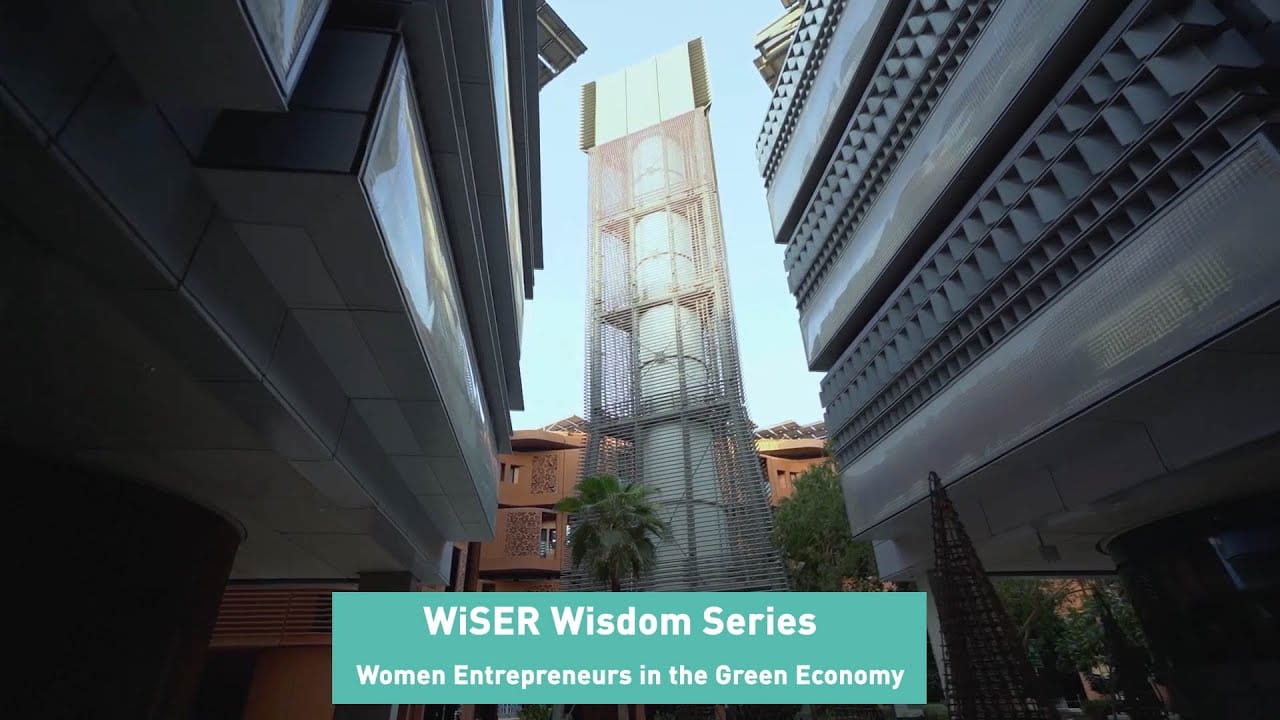WiSER Wisdom Series highlights role of women entrepreneurs in green economy
Women in Sustainability, Environment and Renewable Energy (WiSER), one of Masdar’s outreach platforms, and the Arab International Women’s Forum (AIWF) hosted their first joint webinar event, with a session dedicated to ‘Women Entrepreneurs in the Green Economy.’
The panelists on the webinar – the fourth in the WiSER Wisdom Series – were: Dr Afef Haddad, Country Program Coordinator and Deputy to the Director for the Maghreb and Malta, at the World Bank; Malak Al Shaibani, External Relations Manager, Shell, Oman; Dr Enass Abo Hamed, Co-Founder and CEO, H2GO Power Ltd, UK; and Dr Salma Bougarrani, Co-Founder & CEO, Green Watech, Morocco. The session was moderated by Natalie Jones, Middle East Employment Law Leader, PwC Middle East, UAE.
The webinar represents the first activity undertaken by WiSER and the AIWF since they signed a Memorandum of Understanding (MoU) designed to inspire women of all ages to play a more active role in addressing global sustainability challenges and to give them better opportunities in science, technology, engineering and mathematics (STEM) disciplines.
Shell’s Al Shaibani pointed out in the webinar that “the MENA region actually has 57 percent female graduates in STEM, which is better than the US and UK combined so I don’t think we have an issue with a lack of women with skills” here in the region.
The World Bank’s Dr Haddad agreed, arguing “the issue is not in educational achievement but in access to employment.” Focusing on Morocco, where Dr Bougarrani had talked of facing resistance as the founder of Green Watech, Dr Haddad said “inequalities in access to employment have increased over the past decade.” In 2009, women had represented 35 percent of the workforce in Morocco, while they made up just 26 percent in 2021, she said.
Lack of female representation is not however just a MENA problem, Dr Enass Abo Hamed warned. Rather, “it is a planetary problem, it’s a problem that we have worldwide,” she said, so it is important that women in different regions cross-learn and look at best practices from other parts of the world.
Still, people often underestimate just how difficult entrepreneurship and establishing your own business can be, she said. From her own experiences, she said she had learned that “it takes five minutes to register a company, it takes 24 hours to get approval for a company and it takes years to properly build it.”




